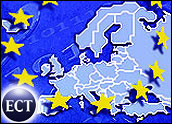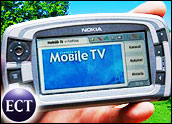
The consumer electronics industry is enthusiastic about President Bush’s new United States Trade Representative (USTR) appointee, formerMotorola executive Susan Schwab, but other industries aren’t as keen on his pick.
Bush elevated Deputy U.S. Trade Representative Schwab to the department’s top post on April 25. She succeeds Ambassador Rob Portman, the president’s nominee to direct the White House budget office.
Schwab was confirmed unanimously by the Senate as Deputy USTR on November 10, 2005.
Policy Development
She has been responsible for trade policy development, negotiation and implementation across a range of issues and regions, according to USTR’s office.
Since her arrival at the USTR, which is part of the Executive Office of the President, Schwab has been active in the development of U.S. strategy in the Doha Round multilateral trade negotiations; she successfully led talks culminating in bilateral free trade agreements with Peru and Colombia.
From 1995 through to 2003, Schwab served as Dean of the School of Public Policy at the University of Maryland, considered a leading school on the East Coast for young people interested in science and technology careers. Before joining the administration, she held the position of president and CEO of the University System of Maryland (USM) Foundation, as well as USM vice chancellor for advancement. Before that, she was a senior executive with Motorola, the leading American consumer electronics manufacturer.
Worldwide Ties
Schwab grew up in Africa, Europe and Asia, and currently lives in Annapolis, Md.
“Given her impeccable credentials in the international trade community, we have every confidence that Ms. Schwab will build upon the strong record of pro-trade policies established during Ambassador Rob Portman’s tenure,” Gary Shapiro, chief executive officer of the Arlington, Va.-based Consumer Electronics Association, told the E-Commerce Times.
“With Ms. Schwab’s strong background in international trade and her considerable experience in the high-tech industry as director of corporate business development for Motorola,” he continued, “CEA is confident she will do an excellent job in promoting trade policies that will help to foster opportunities and continued innovation for the consumer electronics industry.”
The CEA represents more than 2,100 corporations that collectively account for US$125 billion in sales. The association was also effusive about Ambassador Portman — with whom it still wants to maintain a good relationship as he makes the shift to OMB.
“The CEA is grateful to Ambassador Portman for his leadership in the current World Trade Organization (WTO) Doha negotiations and, in particular, his embrace of an electronics sectoral initiative. We expect that Ms. Schwab will continue with this important work, as well as with efforts now underway to expand markets through crucial bilateral and regional free trade agreements, which present great opportunities for the consumer electronics industry,” said Shapiro.
However, David Snyder, vice president and assistant general counsel of the American Insurance Association (AIA), noted that services represent most of the world’s developed economy — yet international negotiations focused on trade in services have been stuck in neutral for several years.
“This delay in services negotiations stunts the growth of insurance and denies its benefits to countries most in need,” he pointed out. “Among the major trade negotiation priorities are further insurance market openings in China and Korea, and productive offers at the World Trade Organization.”
Some Controversy
The nomination may not be without controversy. Bush nominated Susan Schwab as deputy Treasury secretary in 2003. She withdrew amid questions about taxes on a 2000 sale of $1.5 million of stock in Calpine, an energy company where she once served as a board member.
During remarks at the White House last month, after President Bush announced her selection, Schwab tried to quell any critics, and said that the U.S. is seeing an “ambitious outcome” of the Doha trade round.
“This is a once-in-a-generation opportunity to generate global economic growth and to lift millions out of poverty,” said Schwab. “It will continue to be a top priority for this administration.”
Manufacturers see the appointment of Schwab in nationalistic, economic terms. Schwab previously served as the director general of the U.S. & Foreign Commercial Service during the administration of President George H.W. Bush, and on Capitol Hill where she played a major role in numerous U.S. trade policy initiatives. “She will be a strong and an effective voice for leveling the international playing field and creating global opportunities for products made by workers in America,” John Engler, president of the National Association of Manufacturers (NAM), told the E-Commerce Times. “The nation’smanufacturers urge the Senate to confirm her promptly.”






















































Social Media
See all Social Media